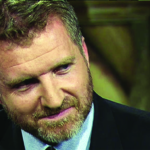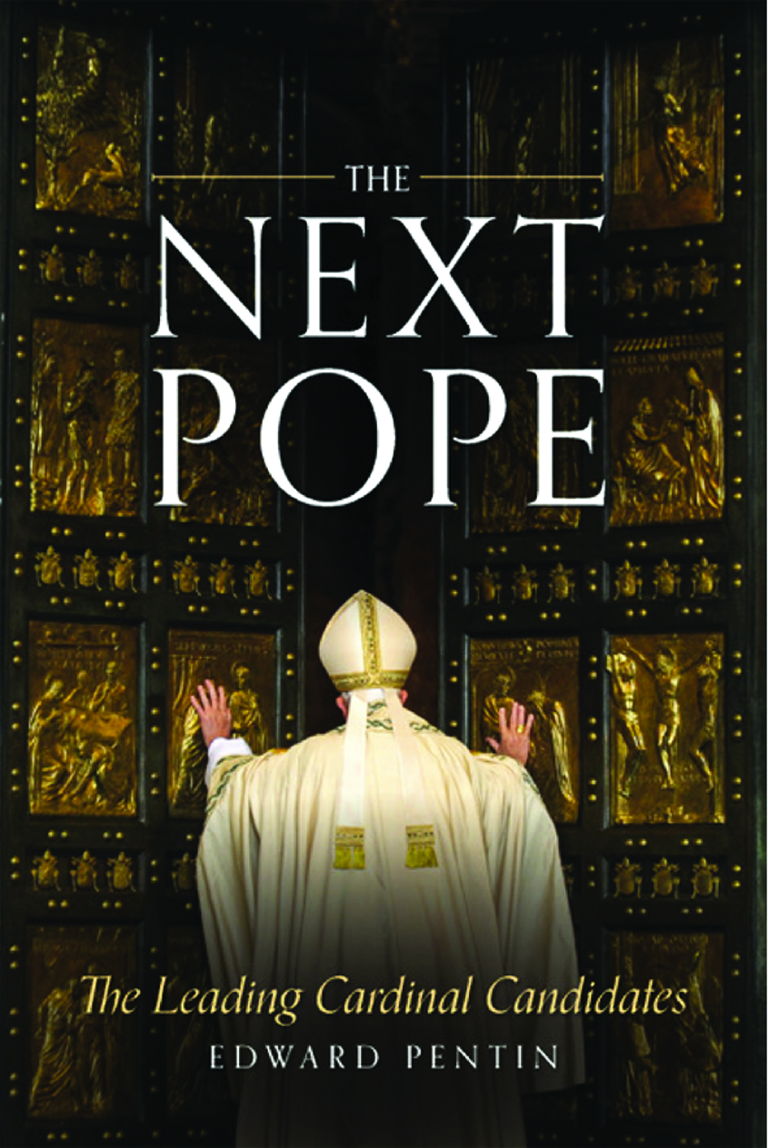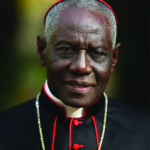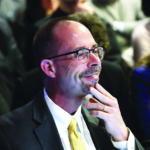A veteran Vaticanist gives the faithful — and voting Cardinals — profiles of the most likely “Papabili” (those “capable of being elected Pope”)
By Jan Bentz

Pentin himself. Pentin is a British journalist who has covered the Vatican with courage and distinction for many years now for the National Catholic Register
In a new book, the veteran Vatican analyst Edward Pentin speaks about the next Pope, what the conclave of Cardinals must look for and who are eligible and probable candidates for the role of Vicar of Christ on earth. In an exclusive interview with Inside the Vatican, Pentin explains why his new book is so crucial.
ITV: Mr. Pentin, you have recently published a book called The Next Pope: The Leading Cardinal Candidates. What compelled you to write this book?
EDWARD PENTIN: First of all, I should say that this book is the work of a number of people, two of whom had the idea for it a few years ago, and I essentially helped pull it together and fill in a number of gaps. The basic premise for it was the relatively unknown fact that not only do most of the faithful not know who the leading candidates are to be Pope, but neither do many of the cardinals themselves. At the last conclave in 2013,some cardinals complained about a confusing process and a dearth of information on who they were voting for. Often they had to rely on others’ recommendations which were not always reliable. This problem has been made more acute as Pope Francis has ceased holding meetings of the College of Cardinals before cardinal-making consistories since 2016. Those gatherings were traditionally a good opportunity for cardinals to meet and get to know one another. This book is therefore primarily aimed at equipping cardinals so they better know whom to vote for — or not vote for — as the case may be. But it’s also meant as a resource for the faithful, to give them a detailed knowledge of some of the cardinals most likely to be elected Pope and therefore also to know whom, and what issues, to pray for.

The cover of the new book by Edward Pentin, The Next Pope
Cardinals have little time to get to know one another: how can they choose the right person to lead the Church? What danger does this dynamic bring about?
PENTIN: This is also a key motive behind the book: the statutory time between the death or resignation of a Pope and a conclave is only three weeks, which gives the cardinals very little time to get to know who might be a prospective candidate. This makes them vulnerable to lobbies and interest groups who can more easily “sell” a candidate, playing on the ignorance of their brother cardinals. The book, therefore, tries to at least partially eliminate that danger. It is totally fact-based and written in an objective manner, allowing readers of whatever persuasion to make up their own minds whether each candidate has what it takes to be Pope. We don’t handicap any of the candidates, they’re just listed in alphabetical order.
What were the criteria you utilized to analyze the “leading cardinal candidates?”
PENTIN: We chose them on the basis of their backgrounds, reputations for leadership, sanctity, governance, teaching and general favorability rankings in the Church. Each cardinal’s profile is presented in accordance with their offices as bishop, priest, prophet and king — so their sanctifying office, teaching office, and governing office — enabling the reader to ascertain how they came to be considered leading cardinal candidates. Of course, as the old Roman saying goes, “Chi entra papa in conclave, ne esce cardinale” (whoever enters a conclave as Pope, leaves it as a cardinal), so it’s naturally possible the next Pope will be none of these, just as Cardinal Jorge Mario Bergoglio was not included on most papabili lists in 2013 — but naturally we believe these 19 stand the best chance of being elected for the reasons I’ve described.
Pope Francis has chosen the majority of the Cardinals currently in the Church who are eligible to vote for the next Pope. Will a “Bergoglio-majority” of cardinals have an effect on the next election?
PENTIN: This is quite possible, but it’s by no means inevitable. Note that most, if not all, the cardinal electors who elected Pope St.John XXIII and Pope St. Paul VI, both widely reputed to be more liberal than Pius XII, were chosen by Pope Pius and his predecessor, Pius XI. This could also work in the opposite direction, and given Francis’ preference to choose cardinals from the “peripheries”—that is, mostly from the generally more “conservative” global south — it’s quite possible that his successor will be more “conservative.”
Do you think that there is a chance for a more “conservative” Pope (for lack of a better word)?

The current prefect of the Congregation for Divine Worship, Cardinal Robert Sarah,
PENTIN: I do think there’s a good chance of this happening, not only for the reasons I’ve just mentioned, but also because of considerable concern in the College of Cardinals about the direction of this pontificate and the turmoil that has characterized it. Another Roman saying holds “a fat Pope follows a thin one” (“Un Papa grasso ne segue uno magro”), meaning that a Pope quite different from his predecessor, either with respect to doctrine or personal character, tends to be elected. Again, these don’t always hold true, but all in all, this leads me to think that it’s more likely than not that the cardinals will choose someone at least seen as more predictable, a “safe pair of hands,” unlikely to spring too many surprises or rock the boat.
Whoever they choose, God willing, they will listen closely to the Holy Spirit, and hopefully consult this book, and elect someone best suited to shepherd souls and lead the Church in whatever times we’re in.
Many Catholics hope for the current Prefect of the Congregation for Divine Worship, Cardinal Robert Sarah, to be the successor of Pope Francis…
PENTIN: If a candidate were chosen by the sensus fidelium — the sense of the faithful — then I would say yes. In my experience, few candidates are so frequently described by laity and clergy alike as someone who could be Pope, and also a great Pope. That needs to be qualified by the fact that I tend to hear mostly from more orthodox practicing faithful, but the fact is that those who are well catechized, take their faith seriously, and recognize that the Church did not begin in 1965 but has a long and great Tradition, tend to be very supportive of him as someone who could lead the Church.

A leading American Vaticanist John Allen
Some argue,such as my colleague John Allen, that electing Cardinal Sarah would be tantamount to a repudiation of Francis’ pontificate, given some of their disagreements, but I disagree. I think he is seen not so much as an opponent of Francis as a cardinal of great holiness, deeply held beliefs, who has a prophetic voice that resonates with many of the faithful today. But to get a better idea of his suitability and come to an independent and informed decision for yourself, I recommend reading the book!






Facebook Comments